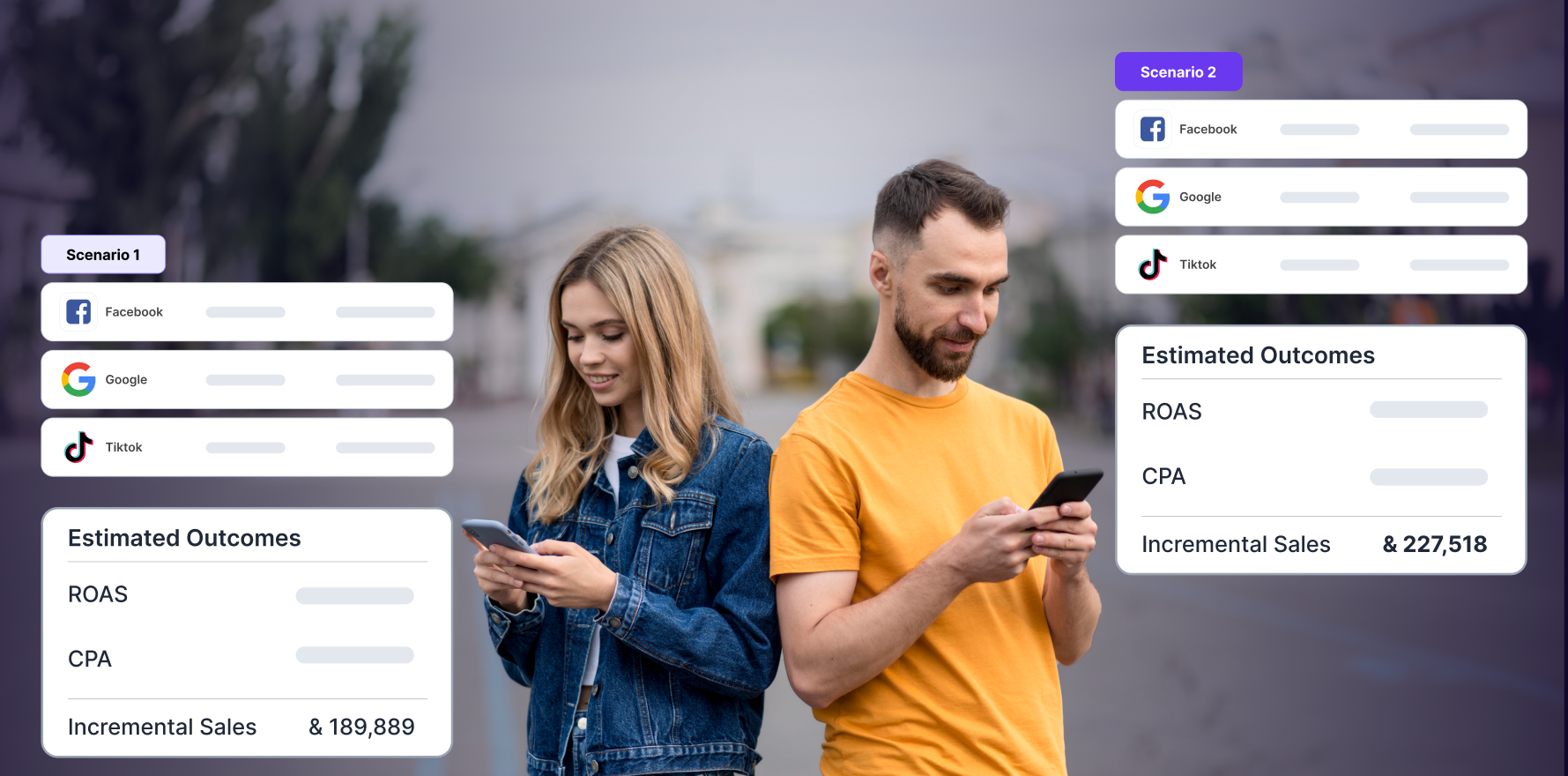It’s that time of the year again when people talk about holidays and vacations, friends and family, food and fun. But savvy marketers are also thinking about how the year passed for them. What experiments worked? How much revenue could they bring in? Could they have saved some money?
Modern marketers are obsessed with data and learning. They are always looking to improve their marketing and understand their customers better. This time during the year is usually spent retrospecting to learn from their mistakes and plan for the year ahead.
Recently, we had a thought-provoking conversation with Angelina Eng, VP of Measurement, Addressability, and Sata Center at IAB. She shed light on some crucial strategies for marketers heading into 2024. This blog post delves into the key insights and themes from that conversation, offering actionable guidance for marketers.
Psst…. You can get the full recording of the conversation here: Proactive Marketing Measurement Strategies For CMOs Before 2024.
Embracing First-Party Data and Data Clean Rooms
With the impending deprecation of cookies, there’s a noticeable shift in marketing investments. Brands are increasingly focusing on building their first-party data graphs and investing in data clean rooms. Angelina Eng emphasizes this point, stating, “There is a growing push by brands to collect first-party data and use them not just in targeting but also in measurements.” This shift is crucial for closing the loop from discovery to conversion, offering a more privacy-centric approach to digital marketing.
Actionable Insight: Start investing in your first-party data collection strategies. Whether through customer sign-ups, loyalty programs, direct interactions, or using a tool to gather data that can directly inform your marketing strategies.
The Single Source of Truth in a Fragmented Ecosystem
A significant challenge in modern marketing is the fragmentation of data across various channels. Teams often operate in silos, with search, social media, and programmatic teams working independently. This approach leads to a scattered understanding of marketing performance. Eng notes the importance of an analytics team that can integrate these disparate data points, stating, “Unless you are using an ad server, your data is sitting in silos preventing you from getting a single source of truth.”
Actionable Insight: Foster collaboration across different marketing channels in your organization. Implement systems and tools that can integrate data from various sources, providing a holistic view of your marketing efforts.
Preparing for Cookie Deprecation and Privacy-Centric Marketing
The deprecation of cookies is not just a technological shift; it’s a paradigm change in how marketers approach data. This transition requires internal collaboration across various departments, including finance, legal, IT, operations, and marketing. Eng rightly points out, “Cookie deprecation is happening, and you need to have internal talks to come up with a plan to overcome the effects.”
Actionable Insight: Begin cross-departmental discussions on how to navigate the post-cookie world. Focus on privacy-compliant strategies and understand how changes in data collection and analysis will affect your marketing plans.
The Increasing Role of Artificial Intelligence
Artificial Intelligence (AI) is set to play a more significant role in predictive analysis and campaign optimization. However, Eng cautions against over-reliance on AI without a foundational understanding of data quality and representation. “AI is not going to replace your team… what it will do is make those teams more efficient,” Eng explains.
Actionable Insight: Invest in AI technologies but ensure that your team is equipped to use these tools effectively. Focus on training and development to understand AI capabilities and limitations within your marketing strategy.
Conclusion
As we approach 2024, the digital marketing world is poised for significant changes, especially in data privacy and measurement strategies. Angelina Eng’s insights provide a roadmap for marketers to navigate these changes successfully. By focusing on first-party data, integrating cross-channel data, preparing for cookie deprecation, and effectively utilizing AI, marketers can stay ahead in this evolving landscape. Remember, the key is not just in adopting new technologies but in understanding how these changes impact your overall marketing strategy and adapting accordingly.
You may also like
Essential resources for your success















